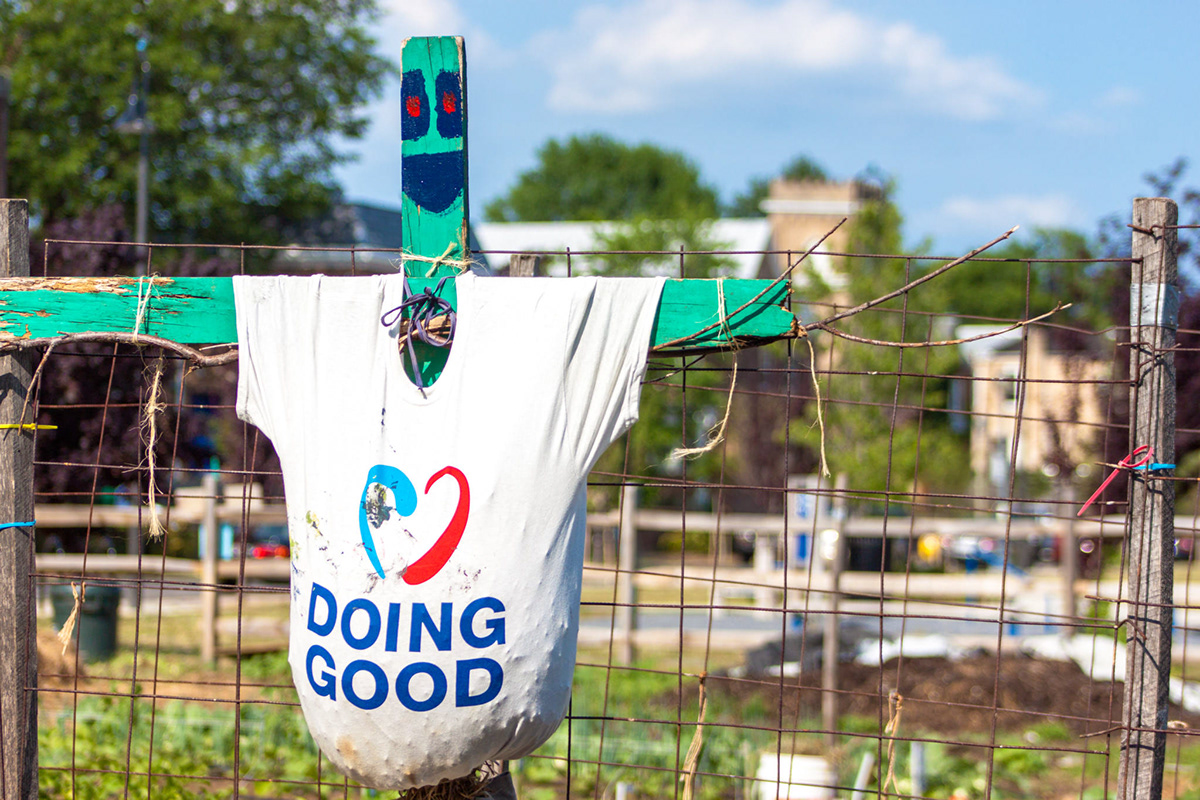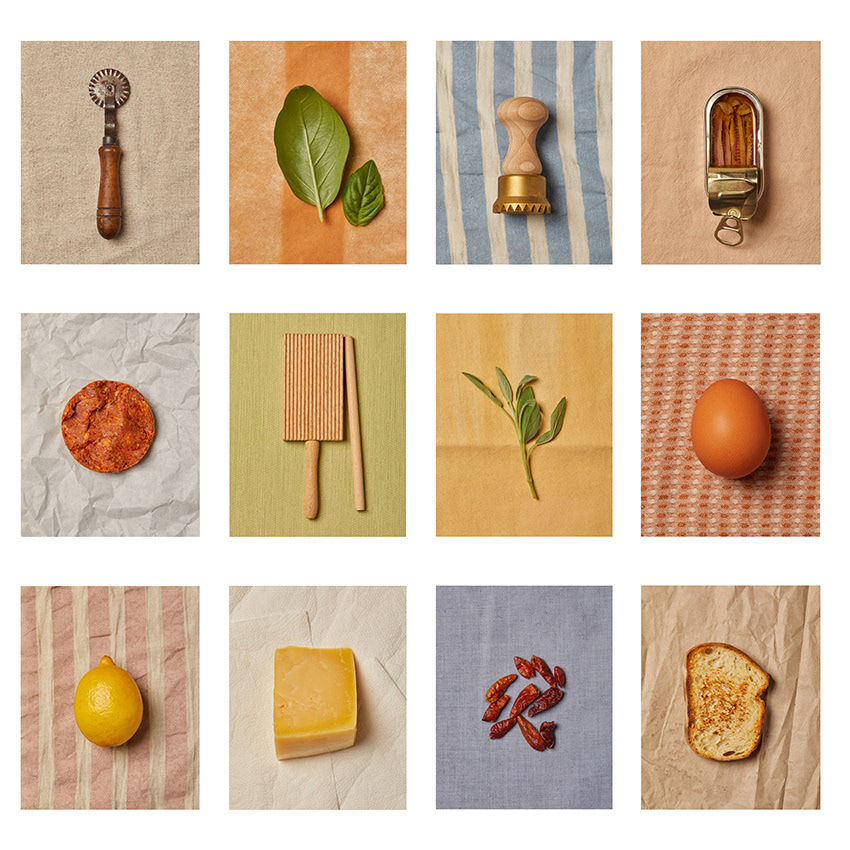"Around here, food is, like, enemy number one," Tameko Rowe says, her hand shading her eyes against the brightness of a June day in the Kenilworth-Parkside neighborhood of Washington, D.C. "It's vital that more places similar to this area have something where people can confidently shop for fresh produce."
Despite its proximity to the fertile Shenendoah Valley, food access is a persistent problem in the D.C. metro area. 12.6% of families in the region experience food insecurity - financial or physical barriers prevent these families from accessing a consistent and reliable source of fresh and nutrient dense foods. Food insecurity rates in Washington D.C. vary drastically by zip code -- ranging from 2.7% in the high-income Northwest quadrant, to 34% in the Southeast Wards 7 and 8.
Despite its proximity to the fertile Shenendoah Valley, food access is a persistent problem in the D.C. metro area. 12.6% of families in the region experience food insecurity - financial or physical barriers prevent these families from accessing a consistent and reliable source of fresh and nutrient dense foods. Food insecurity rates in Washington D.C. vary drastically by zip code -- ranging from 2.7% in the high-income Northwest quadrant, to 34% in the Southeast Wards 7 and 8.


At first sight the Mobile Market is an eye-catching, green school bus. The program -- run out of the Arcadia nonprofit farm -- is 1 part farmers market, 1 part educational tool and 1 part community hub. From Spring until Autumn the bus makes nine weekly stops in under-served neighborhoods in D.C., Maryland and Northern Virginia, accepting standard currency along with most federal food assistance.
By partnering with local farmers to distribute regional, seasonal produce, the Mobile Market aims to bridge the gap between sustainable food solutions and food insecure neighborhoods.
By partnering with local farmers to distribute regional, seasonal produce, the Mobile Market aims to bridge the gap between sustainable food solutions and food insecure neighborhoods.

Mobile Market Director Benjamin Bartley takes a quick break between two Wednesday afternoon market stops in the Northwest quadrant of D.C.
Benjamin's Wednesdays start at 7am at Union Market where the bus parks overnight, before a stop in Alexandria, Virginia and two in the city. He finishes back at Union Market around 8pm.
Benjamin's Wednesdays start at 7am at Union Market where the bus parks overnight, before a stop in Alexandria, Virginia and two in the city. He finishes back at Union Market around 8pm.

Juliet "Juju" Harris -- the Mobile Market's Culinary Educator -- uses firsthand experience with the Special Supplemental Nutrition Program for Women, Infants, and Children (better known as WIC) to help customers that use federal assistance feel confident cooking with their purchases from the market.

People of all ages are encouraged to sample the Market's offerings. Apart from being a vendor, part of the Market's mission is to introduce the community to the roots of local produce and to nutritionally balanced recipes.

An average week for Benjamin means anywhere from 3-6 visits to farms within 100 miles of the D.C., where he purchases additional products that diversify the offerings from Arcadia's home farm in Alexandria.
Because purchases for the market are made hand-to-hand from farmers, sometimes in the midst of a market stop, the time between harvest and purchase can sometimes be measured in increments as small as minutes.

Juju demonstrates the preparation of a recipe made from Market products. Her cooking has earned her a reputation at many of the Markets, where customers flock to sample her original recipes. Juju is in the process of releasing a cookbook of recipes that use WIC staples and fresh produce to make easy to prepare, nutritious meals.

The secondary mission of the Mobile Market is to provide educational programming. Devon, a graduate student at American University, teaches students at the Tree of Life Public Charter School about the USDA MyPlate nutritional guidelines while giving examples from the Market.

Benjamin steers the bus through traffic after a torrential downpour ended the week's final market stop early. The outdoor markets provide limited protection for his products so Benjamin tries to keep an eye out for inclimate weather. "Meteorology is a soft science," he says with a grin.

The Common Good City Farm in LeDroit Park is one of the Mobile Market's most active community partners. The two often exchange produce as Common Good supports a CSA and the Mobile Market makes a weekly stop at the park.
The Shaw neighborhood of the Northwest quadrant -- where LeDroit Park is located -- is seeing an influx of young residents. Both Common Good and the Arcadia Mobile Market are working to build a diverse, dedicated community around local produce.
The Shaw neighborhood of the Northwest quadrant -- where LeDroit Park is located -- is seeing an influx of young residents. Both Common Good and the Arcadia Mobile Market are working to build a diverse, dedicated community around local produce.

Peggy Bowers, the Gardens and Greenhouse Manager at the Mount Vernon estate shows off her crop of cabbage. Located just a few miles from Arcadia's farm plot in Alexandria, Virginia the Mount Vernon estate operates George Washington's former grounds according to the practices that the man himself would have used. Excess crops from Peggy's fields and beds often find their way to the Arcadia Mobile Market.

Just outside the parking lot of the South County Health Center in Alexandria, Virginia, Arnolfo is tending his own small plot. He bought his first seedlings from the Mobile Market during one of the bus's morning stops at the Health Center.
Customers can use cash or EBT (formerly known as food stamps) to purchase seeds and seedlings at the Market. Between his shifts at the Health Center, Arnolfo has sowed his seeds and tapped Juju and Benjamin's knowledge to help his garden grow.
Customers can use cash or EBT (formerly known as food stamps) to purchase seeds and seedlings at the Market. Between his shifts at the Health Center, Arnolfo has sowed his seeds and tapped Juju and Benjamin's knowledge to help his garden grow.

Benjamin watches as a woman returns to her SUV after rear-ending the Mobile Market school bus on a crowded D.C. overpass. The bus was undamaged in the crash, but required maintenance later in the day that kept it in the shop for a week. While the Market was out of commission Benjamin and Juju ran the operation out of pickup trucks so that customers weren't left without produce.

Young men from the Kenilworth-Parkside neighborhood sample kale during their first visit to the Mobile Market as they pass through on their bicycles. "I always see you here but I didn't come up until today," one of them tells Benjamin.

Over the course of the 2013 season the Mobile Market exceeded their sales goal, with 36% of sales going to families that rely on federal food assistance.
It's a Thursday afternoon in August, and Benjamin is nearing the end of a long day. His second stop of the afternoon -- in Adelphi, Maryland -- hasn't been as successful as he had hoped. Only 5 or 6 people made purchases despite the distinct need of the community. Since the Adelphi stop is new, Benjamin predicts that it will take a couple of months before word of mouth gets out.
"We are still a small operation in our second year, but to have those customers come back to tell me what they did with their product, how happy they were with it, that they're trying something new, that they've shared it with their loved ones..." he pauses and readjusts his hat, "I think that's why I do this and what keeps me going."
It's a Thursday afternoon in August, and Benjamin is nearing the end of a long day. His second stop of the afternoon -- in Adelphi, Maryland -- hasn't been as successful as he had hoped. Only 5 or 6 people made purchases despite the distinct need of the community. Since the Adelphi stop is new, Benjamin predicts that it will take a couple of months before word of mouth gets out.
"We are still a small operation in our second year, but to have those customers come back to tell me what they did with their product, how happy they were with it, that they're trying something new, that they've shared it with their loved ones..." he pauses and readjusts his hat, "I think that's why I do this and what keeps me going."



